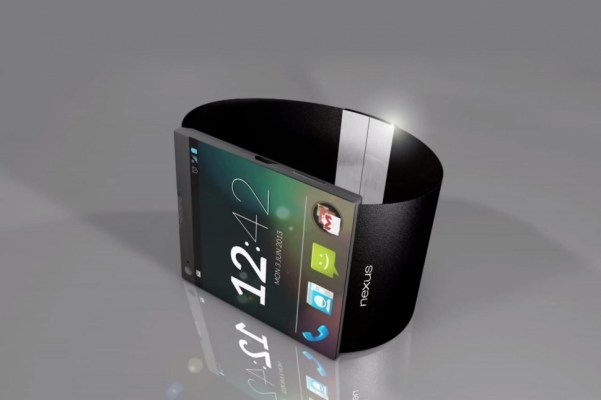Google is reportedly putting considerable brain power into a smartwatch and we couldn’t help wondering just what they’d add to the burgeoning technology. More than any other company, Google is positioned to solve the single biggest shortcoming in wearable technology: pattern recognition. What is it about our daily activities makes us fatter, more alert? What helps us get better sleep and be more productive?
Buried within the big data of our everyday decisions are gems of truth about how we can become the best versions of ourselves. Last Summer, Google’s new head of engineering and artificial intelligence pioneer, Ray Kurzweil, let me know his plans to build everyone a “cybernetic friend”.
So, we know Google wants build the perfect lifestyle recommendation engine; a watch that tracks our vital signs and movement could do just that. Here are two things it would need:
Connecting Devices – If I walk an extra 2,000 steps per day, but get less sleep at night, do I still lose weight? It’s really hard to tell, because humans are not naturally good at intuitively assessing cause and effect when there’s more than one variable involved (i.e. we love a good and bad guy).
Self-improvement tech has consumers up to their eyeballs in smart scales, watches, headbands, and apps. Only a device that vacuums up this data and mines it for patterns could make these devices useful.
In the (very) near future, health devices are going to able to assess our productivity and eating habits as well. The Muse, for instance, is a brain-wave sensing headband that can monitor our levels of concentration throughout the day. Google’s watch could easily sync with the muse and let me know if my focus goes up on days that I do interval sprints or go to bed earlier.
We hope Google puts the lion’s share of its brain power into the software of the Smartwatch.
The Latest In Vital Sign Monitoring – Steps taken, body temperature, resting heart rate, heart rate variability, motion tracking–all of these measures can be combined to learn essential aspects of our fitness. For instance, the Basis B1 smartwatch is the only wrist health tracker on the market to measure the stage of sleep associated with alertness, Rapid Eye Movement, since it has a laser that measures resting heart rate.
Similarly, Polar’s pending smartwatch for athlete’s purports to know when users are under or overtraining based on the variability in heart beats.
Samsung’s Galaxy Smartwatch can even automatically count reps during a workout. The Focus Trainer app assigns users a calisthenic workout and can sense how many pushups are done during each set. I got an early demo and it did a pretty good job sensing my movements.
Over the next year, there will be more devices that won’t even need to be told when users are working out–it’ll just automatically count each rep. Even better, it’ll tell users if they’re form is off.
To date, wearables have been resigned to self-improvement nuts. To mainstream, it’ll have to do the heavy mental lifting for us. Google’s mission is to organize the world’s information. Every decision we make about our health and productivity is a data point–data points that desperately need simplification.
